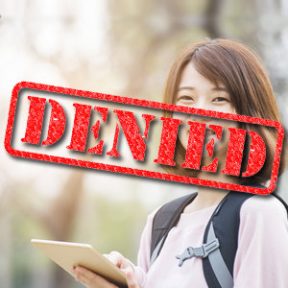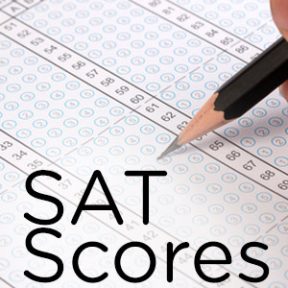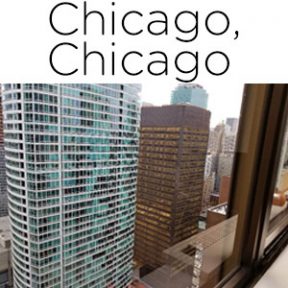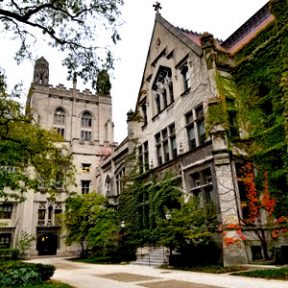 If you’re like me, you feel proud that you recycle your mayonnaise jars and juice bottles. Right? But lately I’ve noticed how many plastic containers fill our recycle bins each week. Trying to reduce my plastic waste, I purchased large glass containers to store bulk flours, nuts, and dried fruit. I was happy to see that my pantry was filled with glass jars that contain our organic staples.
If you’re like me, you feel proud that you recycle your mayonnaise jars and juice bottles. Right? But lately I’ve noticed how many plastic containers fill our recycle bins each week. Trying to reduce my plastic waste, I purchased large glass containers to store bulk flours, nuts, and dried fruit. I was happy to see that my pantry was filled with glass jars that contain our organic staples.
But the problem is that buying bulk foods at Costco or local grocery stores only slightly reduces my plastic intake because they sell everything in large plastic containers. Sure, it’s better to buy one large container than four smaller ones, but I wanted to stop buying food in plastic containers altogether.
Health Food stores like Whole Foods, Staff of Life, and NewLeaf offer a bulk section where you can either bring your own container or use plastic bags to purchase large quantities of ingredients like nuts, seeds, and flours. Then, at home, you simply pour the ingredients into your large glass jars. The only problem with that is that you’re still using plastic bags, and they don’t have bulk purchasing options for other things like cheeses, meats, drinks, and other packaged goods.
I want to shop at a store that has no packaging at all –where everything is sold in bulk and you bring your own reuseable storage containers so there is no plastic usage at all. Sadly, there are no stores like that anywhere near where I live.
Leave it to the rest of the world to do the right thing:
Good news: Earth.Food.Love that sells groceries with no packaging at all. They sell organic, ethical food in bulk. It is truly a zero waste store. Not only do they ban all packaging, but allof the products they sell can be composted or recycled. Wow!
Bad news: It’s only in England
Good news: Germany has an anti-waste supermarket called Unperfekthaus.
More good news: Kenyans face up to 4 years in prison for using plastic bags.
Good news here in the US: Seattle plans to ban all plastic straws and utensils in restaurants by 2018
Support stores that sell bulk items and allow you to bring your own containers. Try converting all of your food storage to glass containers – they keep foods fresher and the plastic chemicals don’t leach into your food.
[Source]



 If you missed the November 30th deadline for transfer applications this year, you’re in luck! For UC Santa Cruz, UC Riverside and UC Merced, the new transfer deadline is January 8th!
If you missed the November 30th deadline for transfer applications this year, you’re in luck! For UC Santa Cruz, UC Riverside and UC Merced, the new transfer deadline is January 8th! 
 In August, Merit Academy hosted TEDxMeritAcademy at the Rio Theatre in Santa Cruz.
In August, Merit Academy hosted TEDxMeritAcademy at the Rio Theatre in Santa Cruz.
 Harvard is being sued by the Justice Dept because of their discriminatory admissions policies against Asian-Americans (not international students). Apparently Harvard restricted admission of Asian-Americans to 18 percent in 2013. A Princeton study found that Asian-Americans need to score 140 points higher on the SAT to have the same chance of admission to private colleges and the Ivy League.
Harvard is being sued by the Justice Dept because of their discriminatory admissions policies against Asian-Americans (not international students). Apparently Harvard restricted admission of Asian-Americans to 18 percent in 2013. A Princeton study found that Asian-Americans need to score 140 points higher on the SAT to have the same chance of admission to private colleges and the Ivy League. 
 With all the terrible things that have happened so far in 2017, I am still thankful.
With all the terrible things that have happened so far in 2017, I am still thankful. 
 If you’ve taken the November SATs or plan to take the December SATs, enter the dates of the exams on your online application form. Then, after you receive your scores, go back to the UC application (even if you’ve already submitted it) and enter your new scores. You only need to do this for one of the UC campuses because all of the UCs will receive your updated SAT scores.
If you’ve taken the November SATs or plan to take the December SATs, enter the dates of the exams on your online application form. Then, after you receive your scores, go back to the UC application (even if you’ve already submitted it) and enter your new scores. You only need to do this for one of the UC campuses because all of the UCs will receive your updated SAT scores. 
 As we prepare for big holiday meals this year, don’t wrap your yams and potatoes (or anything else) in aluminum foil! Yup. According to researchers at the American University of Sharjah, the neurotoxic nature of foil negatively affects brain functioning and may trigger the onset of Alzheimer’s Disease.
As we prepare for big holiday meals this year, don’t wrap your yams and potatoes (or anything else) in aluminum foil! Yup. According to researchers at the American University of Sharjah, the neurotoxic nature of foil negatively affects brain functioning and may trigger the onset of Alzheimer’s Disease.
 Be careful when reading the U.S. News & World Report’s ranking of “Best Colleges” because, well, the buzz among college advisors is that it is FAKE NEWS! Yup. Their rankings are really just measures of parent affluence and cater to the wealthy.
Be careful when reading the U.S. News & World Report’s ranking of “Best Colleges” because, well, the buzz among college advisors is that it is FAKE NEWS! Yup. Their rankings are really just measures of parent affluence and cater to the wealthy.
 Just returned from a whirlwind visit in Chicago where we ate our way around the city. We started out with Chicago’s famous deep-dish pizza at Gino’s, enjoyed their unique Eatily, where a medley of artisan chefs prepare gourmet dishes, and tried dozens of other specialty restaurants on just about every block downtown. Jaclyn and Alex (and Radar!) live on the 40th floor right downtown and just 1.5 blocks from Kellogg’s grad school.
Just returned from a whirlwind visit in Chicago where we ate our way around the city. We started out with Chicago’s famous deep-dish pizza at Gino’s, enjoyed their unique Eatily, where a medley of artisan chefs prepare gourmet dishes, and tried dozens of other specialty restaurants on just about every block downtown. Jaclyn and Alex (and Radar!) live on the 40th floor right downtown and just 1.5 blocks from Kellogg’s grad school. 

 Packing in business with pleasure in Chicago! I joined Jaclyn in business classes at Kellogg’s MBA program at Northwestern last week.
Packing in business with pleasure in Chicago! I joined Jaclyn in business classes at Kellogg’s MBA program at Northwestern last week.